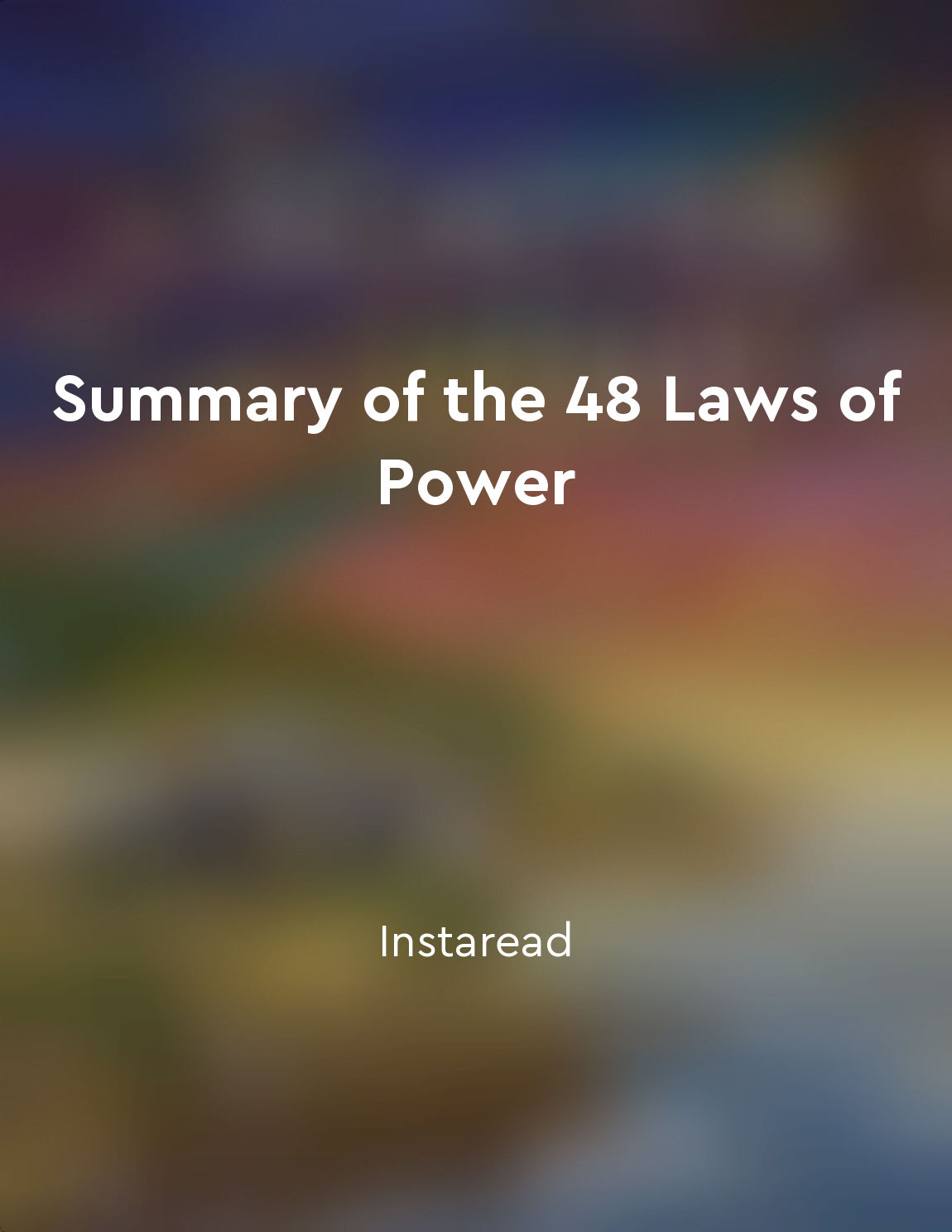Power can lead to ethical lapses from "summary" of The Power Paradox by Dacher Keltner
In the realm of power dynamics, a troubling paradox emerges: the very force that can elevate individuals to positions of authority and influence has a dark side that often leads to ethical lapses. This phenomenon is not limited to a few isolated incidents but is rather a pervasive tendency that can be observed across various contexts and individuals. When individuals acquire power, whether through wealth, status, or position, they often experience a shift in mindset that can compromise their ethical judgment. The sense of entitlement that comes with power can cultivate a mindset of self-interest and a diminished capacity for empathy towards others. As individuals ascend the ranks of power, they may become increasingly detached from the struggles and concerns of those they oversee, leading to a lack of accountability and a willingness to prioritize their own needs over the welfare of others. Moreover, the very nature of power can distort one's perception of reality, leading to a sense of invincibility and a detachment from moral constraints. Individuals in positions of power may come to believe that they are above the rules that govern ordinary individuals, leading to a sense of impunity that can result in unethical behavior. This sense of impunity is reinforced by the deference and flattery that often accompany power, creating a feedback loop that further distances individuals from ethical considerations. Furthermore, the pursuit of power can be driven by a desire for validation and esteem, which can cloud one's moral judgment and lead to ethical compromises. The competitive nature of power dynamics can incentivize individuals to prioritize their own success at the expense of ethical principles, creating a slippery slope towards moral transgressions. In this way, power can serve as a catalyst for ethical lapses, undermining the very values that individuals may have once held dear. In light of these dynamics, it becomes clear that power, while a potent force for change and progress, is also a double-edged sword that can lead individuals astray. To navigate the pitfalls of power and prevent ethical lapses, individuals must remain vigilant and self-aware, actively challenging their assumptions and biases while staying attuned to the ethical implications of their actions. Only by recognizing the inherent risks of power and actively working to mitigate them can individuals harness their influence for the greater good, rather than succumbing to the temptations of unchecked authority.Similar Posts

Cultivate empathy to bridge the gap between strangers
The key to understanding strangers lies in empathy. Empathy is the ability to put oneself in another person's shoes, to see the...

Behavioral patterns of manipulators
Manipulators often exhibit certain behavioral patterns that can help you identify them. One common characteristic is their abil...

Law 28: Enter action with boldness
Law 28 is all about the power of boldness. Being bold means taking action with confidence and fearlessness. It means being deci...

Social hierarchies are perpetuated through cultural norms
Social hierarchies are not simply a result of natural differences in strength or intelligence, but are rather perpetuated throu...
Learning to control your emotions can prevent you from being manipulated
Learning to control your emotions is crucial in protecting yourself from being manipulated by others. Emotions can cloud our ju...
Men must embrace vulnerability
Men have been socialized to believe that vulnerability is a sign of weakness. Many men have been taught to suppress their emoti...

Acquire power through cunning methods
The most effective way to acquire power is through the use of cunning methods. This involves using your intelligence and wit to...
Power dynamics can influence organizational dynamics and structure
Power dynamics play a crucial role in shaping the dynamics and structure of organizations. The distribution of power within an ...
Power can be a tool for positive change when used responsibly
The concept of power as a force for good is a central theme in "Abuse of Power" by Stanley Kutler. Throughout the book, Kutler ...
Power can lead to risky behavior
When individuals gain power, a fascinating transformation occurs within them. As they ascend the social hierarchy, their behavi...
